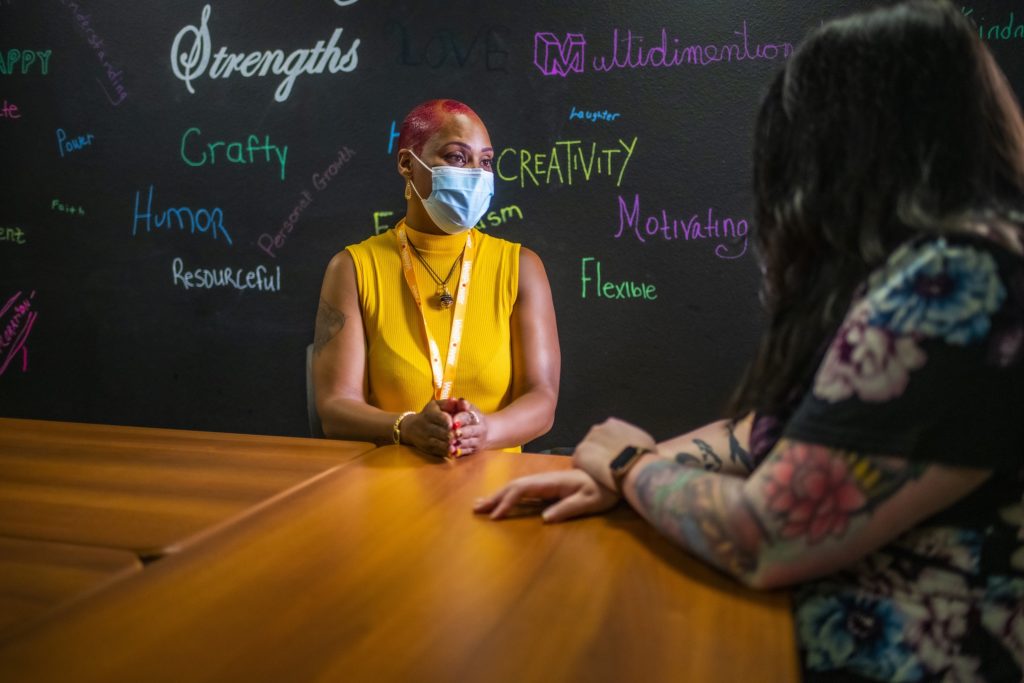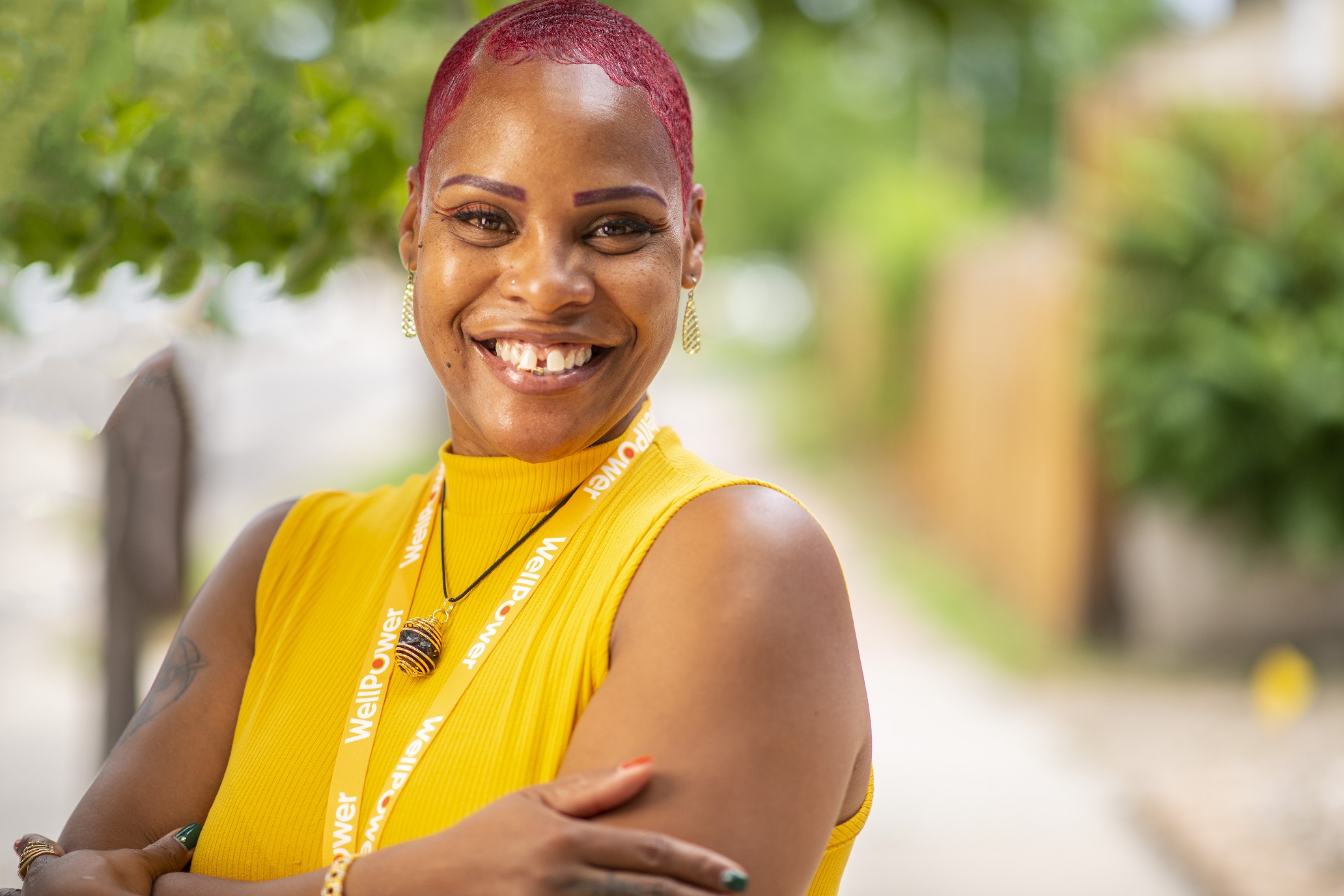Nikki, pictured above, is a Peer Support Specialist with WellPower.
View this post in ASL in a new tab or scroll to the bottom to view on this page.
As a barber for over 20 years, Nikki loved when clients would sit down and share about their lives as she worked on their hair. To her, barbering was always more than a cut or style; it was the vehicle for connection between her and her community. She never knew that one day she’d use an entirely different method of connection to help the people.
Life Can Change in an Instant
In 2019, Nikki, a single mother of four, took on an additional job to bring in extra income. She got injured at work and, though in pain, continued to push through her discomfort for the sake of her family. When she woke up one morning unable to move her neck or arm, she knew her injury was unmanageable. A trip to urgent care revealed a herniated disc and the need for surgery to fix it.
“I was scared and I didn’t know what to do,” said Nikki. “I had to provide for my children, but I also couldn’t go to work. Everything felt like it hit me all at once. I’d never had surgery before, and I was terrified.”
When Nikki found out she’d be unable to work for the first year of recovery from surgery, she was devastated. She felt that all the goals she had for her children, for herself and for her future were slipping away.
Then, a previous client of hers recommended she pursue therapy at WellPower to help her cope. At first, Nikki was hesitant.
“I was told as a Black child that we (the Black community) don’t do therapy,” she said. “I was told that what goes on in your house, stays in your house. What goes on in your life, stays in your life. I struggled with the thought of telling someone, like a therapist, about what I was going through.”
Finding Relief
After grappling with whether to reach out to WellPower and ask for an appointment, Nikki decided to move forward with it.
“I had to piece together my personal justifications for seeking therapy, when I’d been told all my life not to do it,” she said. “It was a challenge for me to accept, at first. I didn’t know I had major anxiety and depression. I didn’t know I’d fallen into these things just from this one moment that changed my life. But it happened. I had to find the courage to accept that some things were off for me, mentally. And then I had to find the courage to accept that I needed help.”
When she began services, she found that everyone she encountered was kind, encouraging, helpful and informative.
Nikki recalled, “Once I was able to talk to somebody at WellPower – to get that mental anguish off my shoulders, off my chest – for them to say, ‘Wow, you’ve been through a lot, and I’m proud of you for still standing. At the same time, WOW, you’re still standing.’ That meant the world to me.”
Peer to Peer Support
Nikki’s journey with her own therapy led her to NextChapter, WellPower’s rehabilitation program for work and education. During her first meeting with a vocational counselor, she was encouraged to start on a program to become a peer support specialist. Peer support specialists are individuals who have successfully navigated their recovery processes, who then help people that are going through similar experiences.

“The vocational counselor, Ray, said to me, ‘You are so strong,’” said Nikki. “’You are resilient. You made it through those hard things and you didn’t let them stop or define you. You can encourage someone going through similar things in their life to do the same thing.’ He really got me thinking that I could help people using the skills I already had from 20 years of talking to my barbering clients.”
Changing careers from professional barber to peer support specialist hasn’t felt all that drastic to Nikki.
“I’m still talking to people about their lives and helping them; now, I’m just doing it without the clippers in my hand,” she said. “I take real joy in the lives that I touch, because I want to be able to give back what was given to me. I’m so grateful for the help I received, and so humbled by my ability to bring that back to my community.”


